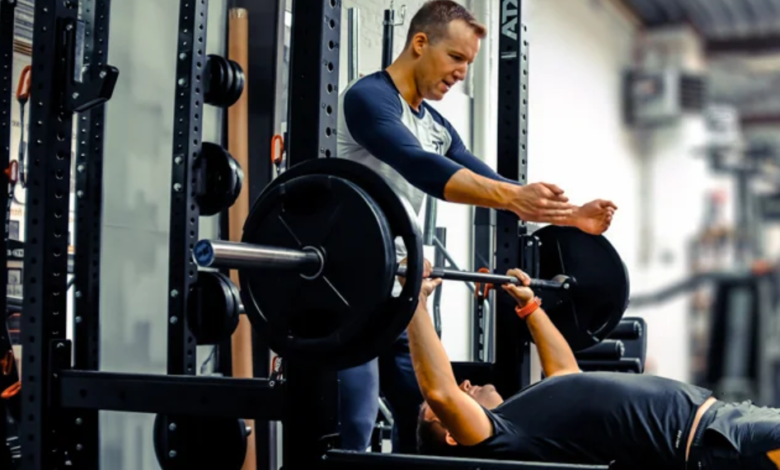Why Plate Loaded Equipment Dominates Strength Training

Strength training remains one of the most effective methods for improving health, building muscle, and enhancing athletic performance. Among the variety of tools available, plate loaded equipment continues to be a gold standard in both commercial and personal gym environments. Its popularity stems from a unique combination of versatility, durability, and the ability to provide a lifting experience that mimics free weights while maintaining control and safety. Whether you’re a seasoned athlete or someone just beginning their fitness journey, understanding the value of Plate Loaded Equipment can make a significant difference in your training approach.
What Is Plate Loaded Equipment?
Plate loaded equipment refers to gym machines that require users to manually load Olympic weight plates onto pegs or sleeves attached to the machine. This design contrasts with selectorized machines, which use fixed weight stacks and a pin system to select the desired resistance.
These machines cover a wide range of movement patterns including leg presses, chest presses, shoulder presses, rows, squats, and more. Each is designed with a specific purpose, targeting key muscle groups with optimal movement mechanics and resistance.
The Appeal of Plate Loaded Equipment
The ongoing popularity of plate loaded equipment is not by accident. It is built on practical advantages that serve gym owners, personal trainers, and individual users alike.
1. Customizable Resistance
With plate loaded equipment, resistance is fully controlled by the user. You can add as little or as much weight as you want, giving you full freedom to train with precise loads. This is ideal for progressive overload training—crucial for muscle development.
2. Closer to Free Weight Feel
Compared to pin-loaded machines, plate loaded equipment provides a more natural lifting experience. The resistance is smoother and more dynamic, mimicking the feel of free weights without the instability or need for spotters.
3. Improved Safety
Machines offer support and structure that free weights can’t. By guiding your motion along a fixed path, plate loaded equipment reduces the risk of injury caused by poor form or muscle fatigue. This makes it a smart choice for those training alone or recovering from injury.
4. Durability and Low Maintenance
With fewer mechanical components—no pulleys or cables—these machines are built for longevity. They are made from strong steel frames and designed to endure heavy use, making them perfect for commercial gyms and high-traffic training facilities.
5. Unilateral Movement Capability
Many designs include independent arms or footplates, allowing for unilateral exercises. This helps correct muscle imbalances and enhances athletic performance by strengthening each limb individually.
See also: Uwco0divt3oaa9r: Unveiling Digital Mysteries
Common Types of Plate Loaded Equipment
To truly appreciate the versatility of plate loaded equipment, it’s worth looking at some of the most popular machines and what muscle groups they target:
- Leg Press Machine
Targets: Quadriceps, hamstrings, glutes
A core lower-body exercise that allows heavy lifting with reduced stress on the spine. - Chest Press Machine
Targets: Pectorals, deltoids, triceps
A powerful upper-body pressing movement that supports heavy loads with safe, controlled motion. - Lat Pulldown Machine
Targets: Lats, upper back, biceps
Helps develop pulling strength and upper back thickness. - Seated Row Machine
Targets: Rhomboids, traps, biceps
Ideal for strengthening the mid-back and improving posture. - Shoulder Press Machine
Targets: Deltoids and upper traps
A safer alternative to barbell overhead presses with guided movement and better form control. - Hack Squat Machine
Targets: Quads and glutes
Provides a controlled squatting motion with back support, excellent for leg hypertrophy.
Who Should Use Plate Loaded Equipment?
One of the most impressive aspects of plate loaded equipment is its adaptability to different types of users:
- Beginners: Offers a safe introduction to resistance training, allowing them to learn proper form without risking injury.
- Advanced Lifters: Supports heavy training loads with the added benefit of muscle isolation and machine-controlled safety.
- Athletes: Useful for sports-specific strength development and improving unilateral power and coordination.
- Rehabilitation Patients: Allows for low-impact training and isolated movements that protect injured joints or muscles.
- Home Gym Owners: Highly valued for durability and the ability to handle serious training loads without complicated maintenance.
Sample Workout Using Plate Loaded Equipment
Here’s a sample full-body routine utilizing only plate loaded equipment, ideal for hypertrophy and balanced strength development:
Day 1 – Upper Body Push
- Plate Loaded Chest Press – 4 sets x 10 reps
- Incline Press – 3 sets x 12 reps
- Shoulder Press – 3 sets x 10 reps
- Triceps Extension – 3 sets x 15 reps
Day 2 – Lower Body
- Leg Press – 4 sets x 12 reps
- Hack Squat – 3 sets x 10 reps
- Standing Calf Raise – 3 sets x 20 reps
- Leg Curl – 3 sets x 15 reps
Day 3 – Upper Body Pull
- Lat Pulldown – 4 sets x 10 reps
- Seated Row – 3 sets x 12 reps
- Rear Delt Row – 3 sets x 15 reps
- Biceps Curl – 3 sets x 15 reps
This routine supports strength development across all major muscle groups using only plate loaded equipment, ideal for those looking for machine-based training that’s still dynamic and challenging.
Choosing Plate Loaded Equipment for Your Home or Gym
When investing in plate loaded equipment, consider the following factors:
- Space Availability: Some machines are large and heavy, so ensure your gym space can accommodate the size.
- Exercise Versatility: Multi-functional machines that allow for more than one exercise can save space and money.
- Build Quality: Look for machines with strong steel frames, quality welds, and ergonomic design.
- Weight Compatibility: Ensure the machine is compatible with standard Olympic plates.
- Ease of Use: Machines should allow for easy plate loading and adjustment without the need for tools.
Great starter options include a plate loaded leg press, a chest press, and a lat pulldown/seated row combo machine.
Maintaining Plate Loaded Equipment
Though generally low-maintenance, proper care ensures longevity and safety:
- Wipe Down After Use: Prevents sweat and grime from causing corrosion.
- Check Bolts and Fasteners: Regularly tighten to ensure stability.
- Lubricate Moving Parts: Apply appropriate grease to pivot points occasionally.
- Store Plates Properly: Avoid clutter and tripping hazards by using plate trees or storage pegs.
By taking simple steps, your plate loaded equipment will remain in top condition for years of consistent training.
Final Thoughts
Plate loaded equipment is a proven solution for serious strength training. Its mix of customizable resistance, free-weight feel, and machine-guided control makes it suitable for nearly every type of trainee. Whether your goal is to gain muscle, recover from injury, or simply train smarter, this equipment provides the tools needed to achieve long-term progress.
In a world of evolving fitness trends, plate loaded equipment has stood the test of time—and for good reason. Its simplicity, strength, and effectiveness make it an essential component in any serious training program.





